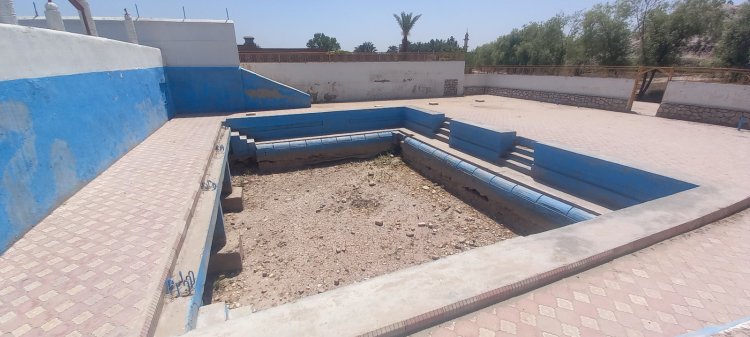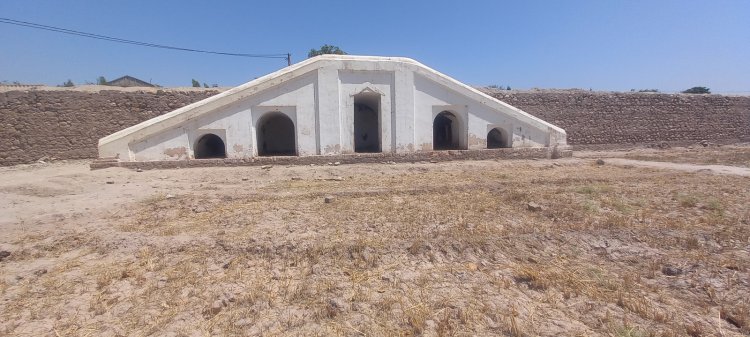Drought Dries Up Sultanpur Historical Springs in Nangarhar
Local sources in Nangarhar report that the historical springs of Sultanpur in the province have dried up due to drought.
The famous Sultanpur springs are located in the "Moy Mubarak" area of the Surkh Rod district in Nangarhar, with a history of nearly a century.
Years ago, alongside the springs, there was also a large orchard of fresh fruits in the Sultanpur area, but now only the springs remain, and the orchard has disappeared.
The Sultanpur springs were not only linked to the prosperity of the region but were also one of the largest tourist attractions in Nangarhar. Former Afghan King Amir Habibullah Khan would visit these springs with his family during the winter for relaxation, as the water of the springs would be cold in summer and warm in winter.
One of the spring keepers says that there were two springs here, one for Hindu women and the other for men, specifically for washing. However, for the past two years, these springs have dried up due to drought and neglect.
He adds that these springs are religiously significant for Sikhs. During the previous government, Sikhs would begin their three-day Vaisakhi festival in the city of Jalalabad, and on the second day, they would visit the Sultanpur springs in Sera Rod district to perform religious rituals for several days.
The keeper also mentioned that with the arrival of the Taliban, not only have most Sikhs fled the country, but restrictions have been imposed on their religious ceremonies as well.
He further stated, "The Sikhs would conduct special ceremonies at the Sultanpur springs on Vaisakhi days, and Hindus would also come here to hold celebrations, but for two years now, these springs have dried up due to drought and neglect."
A 50-year-old local resident of Sera Rod district, identified as Naqibullah (a pseudonym), says that these springs are not only historically important but were also used by local farmers to irrigate agricultural land and orchards. They also served as a recreational area.
He argues that historical and cultural sites reflect the history and heritage of a country, and therefore, they need to be protected and preserved.
According to him, the Sultanpur springs have dried up due to severe drought and the negligence of responsible authorities, and in addition, the water level in the Sera Rod district has significantly dropped, causing many wells to dry up.
Naqibullah added, "The Sultanpur springs are a historical site, and in the past, people used to irrigate their fields and orchards with the water from these springs. But now, due to drought, the water has dried up. We urge the relevant authorities and international organizations to take action for the restoration of these springs."
He further mentioned that in the past, Sikhs would visit the Sultanpur springs during Vaisakhi, following their ancient religious traditions, and would pray to purify the sacred waters, which have now dried up due to drought.
There are also reports that during previous governments, on Vaisakhi day, Sikhs from all over Afghanistan would come to Sultanpur springs, and along with performing other religious ceremonies, they would also conduct weddings.
In the past, the number of Sikhs in Jalalabad reached ten thousand, but after the Taliban's return to power, most of them have fled to countries such as India, the United States, Australia, and other foreign countries.
Sikhs in Afghanistan have suffered greatly during three decades of war, with their lands and homes often seized by powerful individuals, and many of these cases remain unresolved.


